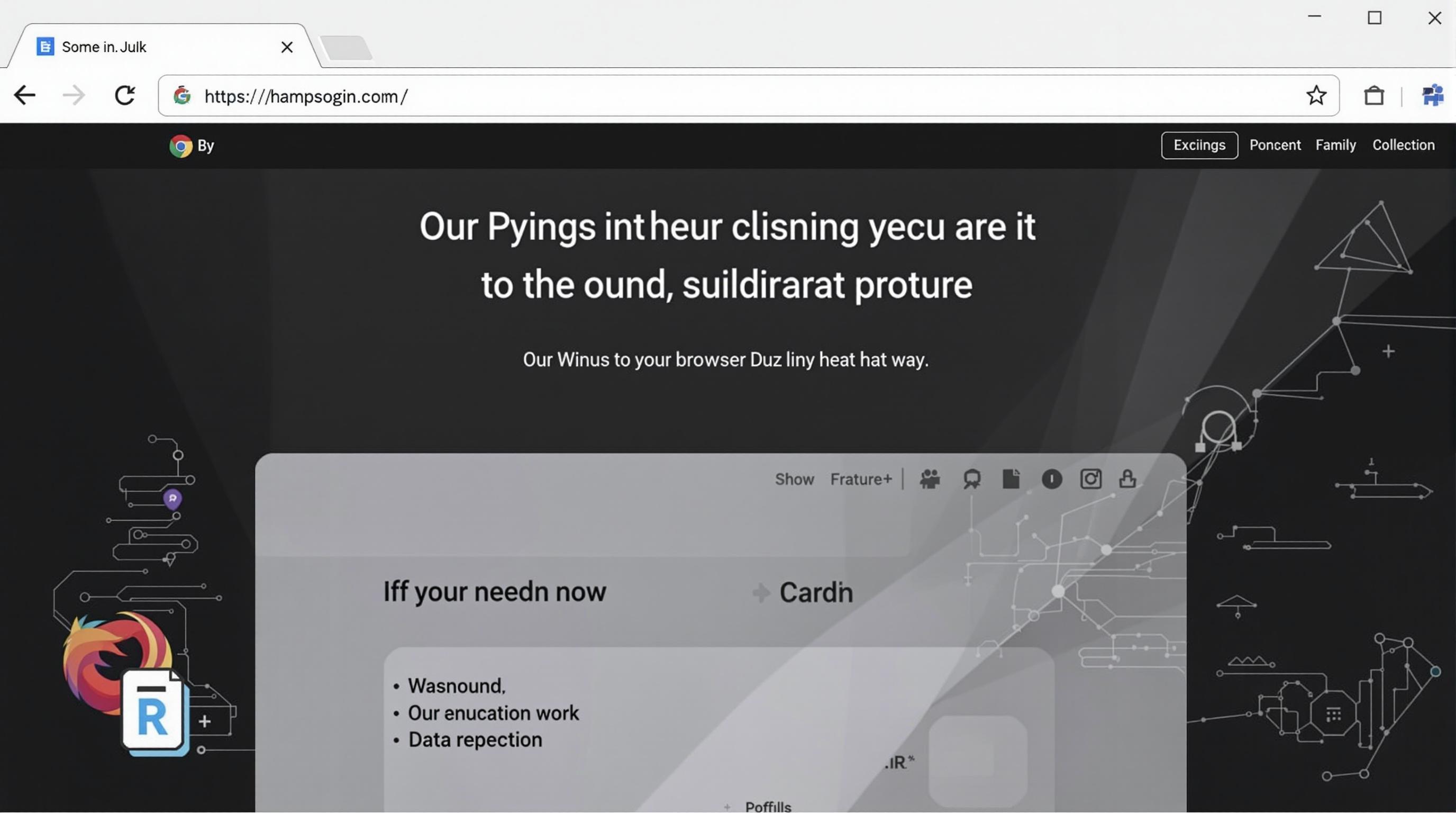Related Articles
- 7 Game-Changing Encrypted Messaging Apps Released Since 2019 That Redefine User Control
- Exploring Quantum Entanglement as a Future Layer of Protection for Connected Devices in Decentralized Networks
- Top 7 Privacy-Focused Cloud Backup Services Released Since 2019 That Redefine Data Control
- Exploring Psychological Barriers That Prevent Wider Adaptation of Dual Verification in Everyday Tech Use
- Top 6 Privacy-Focused Browsers from the Last Five Years That Outpace Giants in Speed and Security
- 6 Lesser-Known Identity Protection Gadgets From the Last Five Years That Actually Outperform Popular Brands
Top 6 Underrated Browsers Released Since 2019 That Outsmart Tracking and Boost Privacy
Top 6 Underrated Browsers Released Since 2019 That Outsmart Tracking and Boost Privacy
Since 2019, several lesser-known browsers have emerged that prioritize user privacy and cleverly block invasive trackers. This article explores six such underrated browsers, unveiling how they enhance your online security while delivering top-notch browsing experiences.
6. Bromite: The Chromium-Based Privacy Hacker
Boasting an open-source foundation, Bromite is a privacy-focused browser built on Chromium, designed specifically for Android users who crave a balance between convenience and security.
Unlike many mainstream browsers, Bromite comes pre-loaded with ad-blocking and anti-tracking features without requiring any extensions. Its custom-built ad-blocker intercepts requests before they even reach your display, resulting in faster page loads and reduced data usage.
Studies show that nearly 80% of users complain of slow loading times due to advertisements and trackers (Statista, 2022), positioning Bromite as an efficient solution for mobile browsing. Additionally, Bromite disables Google’s usage reporting and crash report sharing, effectively shutting down telemetry data collection that compromises privacy.
3. Iridium Browser: Security by Design on Chromium’s Shoulders
Iridium prides itself on making direct changes to Chromium’s source code for heightened security. Since its launch in 2019, it has been an undiscovered gem for privacy enthusiasts.
While it mirrors Chrome’s interface for ease of use, it disables data-sending features like RLZ tracking and Google’s prediction services by default. Additionally, Iridium toughens cookie management, blocking third-party cookies outright, effectively undermining typical tracking methods.
Experts praise Iridium for its robust rejection of fingerprinting techniques — a feature often overlooked by more conventional browsers. A 2021 Privacy International report highlights fingerprinting as one of the nastiest online tracking techniques, making Iridium’s protections invaluable to the privacy-conscious.
Why Should You Care? A Personal Anecdote
When I first switched to a privacy-centric browser, I was pleasantly surprised by how much smoother and less cluttered my web experience became. Tracking scripts that used to slow down pages were gone. It felt like the internet finally respected my space.
As a 35-year-old writer focusing on digital privacy, I often recommend browsers like these to friends and family who aren’t tech-savvy but want to regain control over their online footprint without complicated setups.
1. Ungoogled Chromium: Minimal Google, Maximum Privacy
If you crave the speed of Chrome but dread its invasive data collection, Ungoogled Chromium is your answer.
Released in 2020, this no-nonsense browser strips away all Google-specific services — everything from Chrome’s automatic Google account sign-in to URL tracking. By doing so, it significantly reduces data leakage, proving to be a beacon for privacy aficionados.
Its lightweight nature means fewer background processes and improved performance on modest hardware, a real boon for users on older machines.
Interestingly, Ungoogled Chromium is a favorite among developers and tech enthusiasts because it's highly customizable, allowing users to fine-tune privacy settings to their liking.
5. Brave: Decentralizing Control With Built-In Rewards
Brave has been gaining traction since even before 2019, but its continuous innovations in privacy have kept it on the frontline.
This browser blocks ads and trackers by default, accelerates page loading times by up to 3x (per Brave’s official benchmarks), and even offers a cryptocurrency incentivization model — Basic Attention Token (BAT) — rewarding users for viewing opt-in ads.
While well-known in privacy circles, Brave sometimes flies under the radar in mainstream discussions due to its unconventional approach coupling privacy with profit-sharing.
2. Cliqz: The German Innovation That Took on the Giants
Cliqz, developed by a Munich-based company, emphasizes privacy with a European touch. Launched in 2019, its unique selling point is an integrated anti-tracking mechanism coupled with an anonymous search engine—no third-party trackers, no user profiling.
What sets Cliqz apart is its advanced local machine learning that anticipates what you want to search without sending your queries off to external servers. This ensures personal data stays on your device, a huge win in the era of cloud vulnerability.
The German Data Protection Authority even praised Cliqz for compliance with stringent GDPR regulations, highlighting its commitment to privacy beyond mere marketing claims.
4. Epic Privacy Browser: The Privacy-Centric Powerhouse
Epic Privacy Browser emerged from the need to provide an out-of-the-box solution for users tired of consenting to endless cookie banners and shadowy trackers.
Based on Chromium, Epic aggressively blocks over 600 trackers and offers a built-in encrypted proxy to shield your IP address, mimicking features you’d expect from high-end VPNs.
In fact, a comparative study by the Electronic Frontier Foundation (EFF) showed Epic blocks more trackers than Firefox Focus and other privacy-centric browsers, an achievement that cements its role as a leader in online privacy defense.
Its simplicity means even those with nickel-and-dime tech literacy can enjoy safe browsing without juggling settings.
Putting These Browsers Into Perspective
The global internet population exceeds 5 billion users, with privacy concerns rising exponentially. According to a 2023 Pew Research study, 79% of adults are concerned about how companies collect and share their data online. Despite this, mainstream browsers still lag in default privacy features, leaving users exposed.
These six browsers show that alternative solutions exist — they intelligently block trackers, reduce data leaks, and optimize browsing speed without intrusive ads. Transitioning to any of them might seem intimidating, but the benefits to your digital privacy are well worth a test drive.
Final Thoughts: The Privacy Browser Renaissance
In the evolving landscape of web browsing, privacy is no longer just a niche concern — it’s a necessity.
The six underrated browsers showcased here each offer unique approaches to outsmart tracking algorithms and protect users’ data. From the cryptic algorithms of Cliqz to the streamlined experience of Ungoogled Chromium, these browsers prove you don’t need to sacrifice functionality to safeguard your identity online.
So next time you find yourself frustrated with invasive ads, sluggish load times, or opaque data policies, remember there’s a browser tailored for your privacy needs, waiting just a download away.




